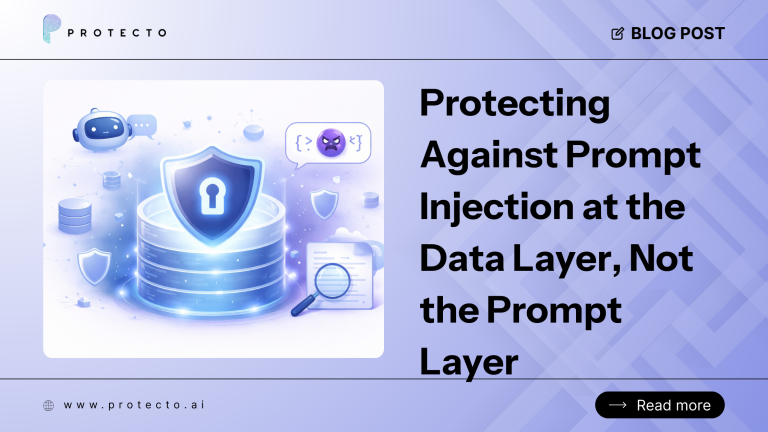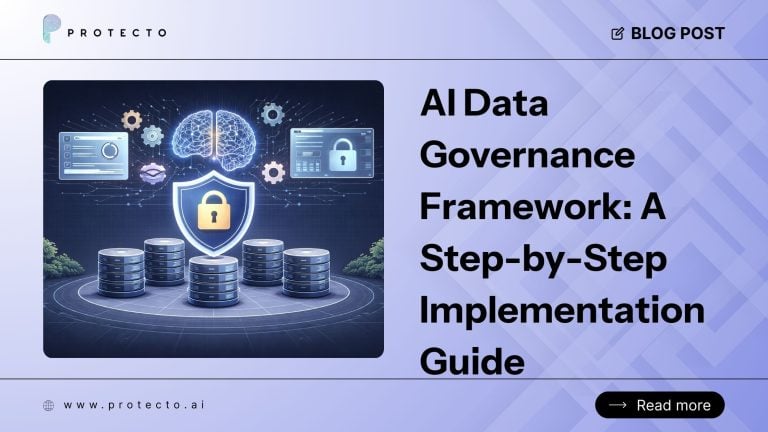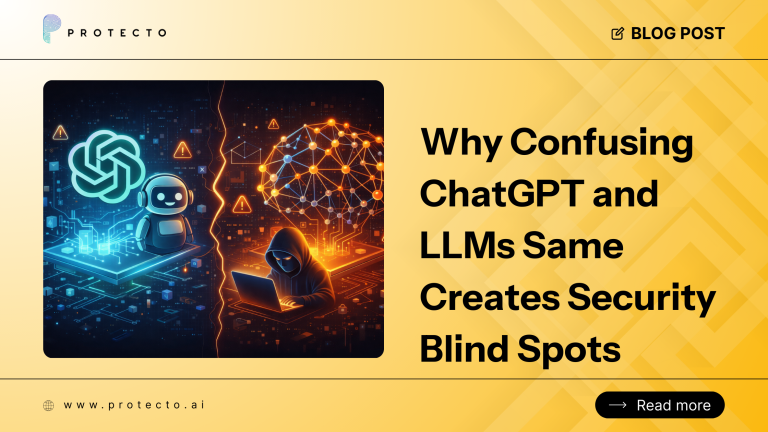In the busy domain of artificial intelligence (AI), the emergence of Private Language Model Models (LLMs) marks a pivotal development in addressing the escalating concerns surrounding data protection. As organizations harness the power of AI to glean insights and streamline operations, the need for safeguarding sensitive information has become more pronounced than ever. Private LLMs, distinguished by their tailored privacy features, present a proactive solution to the intricate challenges posed by data security in AI applications.
The term “Private LLMs” encompasses a set of language models specifically designed to operate within closed environments, affording organizations greater control over their data. By exploring the intricacies of Private LLMs in the context of data protection, organizations can make informed decisions that not only fortify their AI initiatives but also uphold ethical standards in the evolving landscape of artificial intelligence.
Understanding Private LLMs
Private Large Language Models (LLMs) represent a distinct paradigm in artificial intelligence, catering to a growing demand for enhanced data protection and privacy. These models, characterized by their exclusive usage within specific organizational boundaries, stand in contrast to their public counterparts.
In essence, Private LLMs are developed and deployed for the exclusive use of a particular entity or enterprise. This exclusivity ensures greater control over the model and the data it processes, addressing data security and privacy concerns. Unlike public LLMs, which are accessible to a broader audience, Private LLMs operate within defined constraints, typically within the confines of a corporate firewall.
The comparison between Private and Public LLMs underscores the advantages of the former. While public models may offer a more extensive dataset for training, they come with inherent risks related to data exposure and privacy breaches. Private LLMs, on the other hand, prioritize data control and minimize the risk of third-party access.
Organizations across various industries increasingly adopt Private LLMs to safeguard sensitive information and control their AI initiatives. In particular, the healthcare sector, financial institutions, and legal services find value in the enhanced security and privacy afforded by Private LLMs, aligning with their allegiance to data protection and regulatory compliance.
Data Protection Landscape in AI
Integrating artificial intelligence (AI) into various domains has ushered in transformative capabilities and created a complex data protection landscape. AI encounters challenges and concerns in open environments that demand a nuanced approach to safeguarding sensitive information.
One prominent challenge is the potential exposure of data in open AI ecosystems. With multiple entities accessing and contributing to shared platforms, the risk of data breaches and unauthorized access becomes more pronounced. This threatens individual privacy and raises ethical questions surrounding the responsible use of AI technologies.
Stringent regulatory requirements and compliance measures have been instituted to navigate this landscape. Organizations leveraging AI must adhere to frameworks such as the General Data Protection Regulation (GDPR) and other data protection regulations. This ensures legal compliance and fosters a culture of responsible data handling.
Privacy is pivotal in building trust between users, organizations, and AI systems. Organizations must prioritize transparent data practices as users become more conscious of privacy. Establishing robust privacy measures becomes imperative to instill confidence in users regarding the responsible and ethical deployment of AI technologies. In essence, the data protection landscape in AI is a dynamic terrain, demanding continual adaptation to evolving challenges and a commitment to the principles of privacy and ethical AI use.
Advantages of Private LLMs from a Data Protection Perspective

Enhanced Data Control
In private Language Model Models (LLMs), organizations gain a distinct advantage through enhanced data control. This entails the ability to tailor data handling policies according to specific needs. Private LLMs enable organizations to dictate how data is processed, stored, and accessed unlike their public counterparts. This customization empowers companies to align their data practices with internal policies, industry standards, and evolving regulatory requirements.
Additionally, private LLMs help minimize third-party access to sensitive data. With data breaches becoming a prevalent concern, limiting external entities’ access to proprietary information is crucial to data protection. Private LLMs provide a secure environment where organizations have more control over who can access their data, reducing the risk of unauthorized breaches and potential data misuse.
Improved Data Privacy
The inherent design of private LLMs addresses the pressing issue of data exposure and privacy concerns. By operating within controlled environments, these models significantly reduce the risks associated with unintentional data leaks. This is particularly critical in industries where safeguarding susceptible information, such as healthcare, finance, and legal, is paramount.
Moreover, private LLMs are pivotal in mitigating privacy concerns that often arise in deploying artificial intelligence. Users and stakeholders are more likely to trust systems that prioritize data privacy. The assurance that their data is handled responsibly fosters a sense of confidence, which is critical for the general adoption and acceptance of AI technologies.
Regulatory Compliance
Steering the intricate landscape of data protection regulations is a formidable challenge for organizations leveraging AI. Private LLMs offer a solution by providing a framework that aligns with regulatory requirements. Addressing mandates such as the General Data Protection Regulation (GDPR) becomes more manageable as organizations can implement and enforce compliance measures within their controlled environments.
Moreover, private LLMs streamline compliance efforts by offering a centralized approach to data governance. This ensures adherence to existing regulations and facilitates adaptability to evolving legal frameworks. The result is an AI infrastructure that meets current standards and is equipped to handle future changes in data protection legislation.
Tailored Security Measures
Recognizing the diverse security needs across industries, private LLMs allow organizations to implement industry-specific security protocols. This tailored approach ensures the model aligns with a particular sector’s security challenges and requirements. Whether it’s healthcare’s emphasis on patient confidentiality or finance’s focus on preventing fraudulent activities, private LLMs offer a flexible and adaptive security framework.
Furthermore, protecting sensitive information is paramount, especially when data confidentiality is non-negotiable. Private LLMs facilitate the implementation of robust security measures to defend against likely threats, ensuring the integrity and privacy of the data processed by the model.
Reduced Dependency on External Providers
Reducing dependency on external providers becomes a strategic imperative in pursuing enhanced data protection. Private LLMs contribute to this objective by minimizing exposure to external breaches. By managing and controlling their AI infrastructure internally, organizations can mitigate the hazards associated with third-party vulnerabilities, ensuring a more secure data processing environment.
Additionally, ensuring data sovereignty is another critical advantage of reduced dependency on external providers. Organizations can maintain control over where their data resides and how it is managed, addressing concerns related to data jurisdiction and compliance with regional data protection laws.
Customizable Training Data
Organizations can customize training data to align AI systems with their values and principles, thereby addressing ethical considerations. This helps ensure relevance and appropriateness across diverse contexts.
The advantages of private LLMs from a data protection perspective extend beyond mere customization. These models provide organizations with the tools and frameworks necessary to enhance data control, ensure privacy, comply with regulations, implement tailored security measures, reduce dependency on external providers, and customize training data, collectively fostering a robust and responsible AI ecosystem.
Challenges and Considerations
Resource Intensity
Addressing the formidable resource demands associated with private LLMs is a critical challenge in their implementation. The computing and storage requirements are often substantial, necessitating robust infrastructure. As organizations embrace the power of private LLMs, striking a balance between optimal performance and resource consumption becomes imperative. This entails deploying efficient hardware and optimizing algorithms to enhance computational efficiency.
Integration with Existing Systems
Ensuring the seamless integration of private LLMs with an organization’s existing infrastructure poses a challenge. This involves aligning the private LLMs with the organization’s private systems, networks, and databases. Overcoming compatibility challenges is essential to ensure a smooth transition and efficient collaboration between private LLMs and other existing tools or platforms.
Cost Considerations
Analyzing the total cost of ownership is crucial when implementing private LLMs. While the benefits of enhanced data protection are evident, organizations must weigh these advantages against the associated costs. This comprises the initial investment in hardware and software and ongoing operational expenses. Striking a balance between the cost implications and the data protection benefits is pivotal for organizations seeking to adopt private LLMs effectively.
Final Thoughts
Private LLMs can play a pivotal role in shaping the responsible implementation of AI technologies. The enhanced data control enabled by customized handling policies and reduced third-party access significantly bolsters privacy measures. Moreover, the seamless alignment with regulatory requirements, particularly addressing GDPR and other data protection regulations, showcases the commitment of Private LLMs to compliance.
Tailored security measures, including industry-specific protocols, serve as a robust shield protecting sensitive information. Private LLMs emerge as critical enablers of ethical and organization-specific AI solutions by minimizing dependency on external providers and ensuring customizable training data. In conclusion, their pivotal role in data protection underscores organizations’ need to carefully evaluate and embrace these technologies for a more secure and trustworthy AI future.
Bolstering compliance and data privacy for your organization can become simple and powerful with Protecto. Schedule a demo now to stay worry-free about regulatory compliance and data protection.



